From the Forest to the Ocean with Bizia Surf
By Kailani Wetherell for Sustainable Surf, 25 July 2024.
When I sat at Haleiwa Joe’s and met McKenna Conforti last October, little did I know that it would spark the beginning of a long awaited partnership between the ECOBOARD Project and Bizia Surf. A few drinks turned into conversation of sustainability in board building and invasive species on our island of O’ahu. I began attending more of Bizia Surf’s events because they managed to combine four things I’ve long found passions in: art, sustainability, our oceans, and coffee. At this point, I knew it was time to dive deeper into the story.
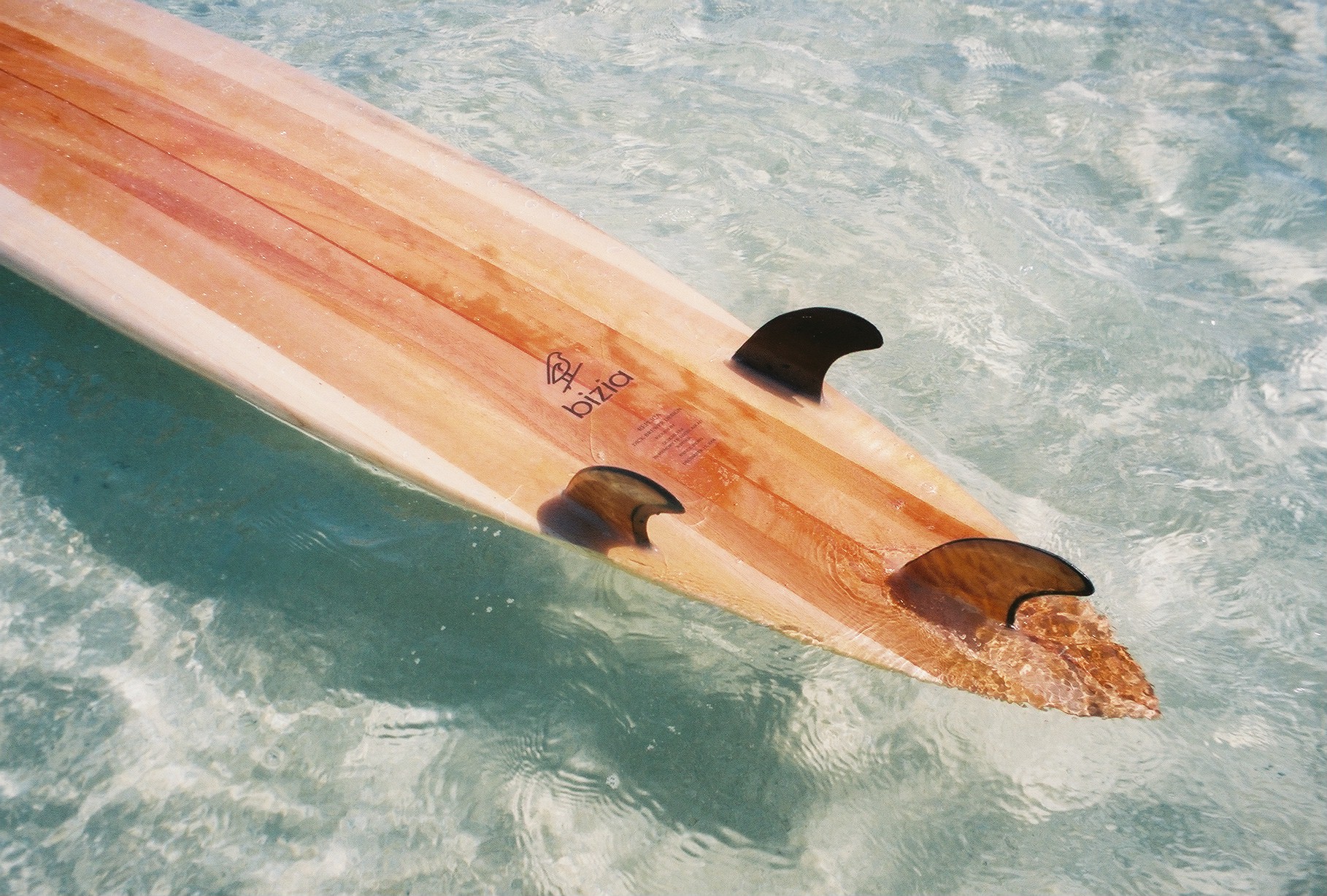
McKenna shared with me the origin story of Bizia Surf, which if you’re anything like me is going to make you fall ten times more in love with the brand. Here’s how it went down:
Born out of a collaboration between college sweethearts Joey and Christie Valenti, Bizia Surf began as a student project at UH Manoa. Joey had the ingenious idea of using the highly invasive albizia tree as lumber for his final graduate architecture project. This led to the creation of the Albizia Project, an organization dedicated to repurposing albizia lumber for various projects. As passionate surfers and advocates for preserving native Hawaiian land and culture, Joey and Christie decided to create a line of surfboards from this same wood. Over the past two years, they have built a line of wooden boards using both state-of-the-art technology and ancient design concepts.
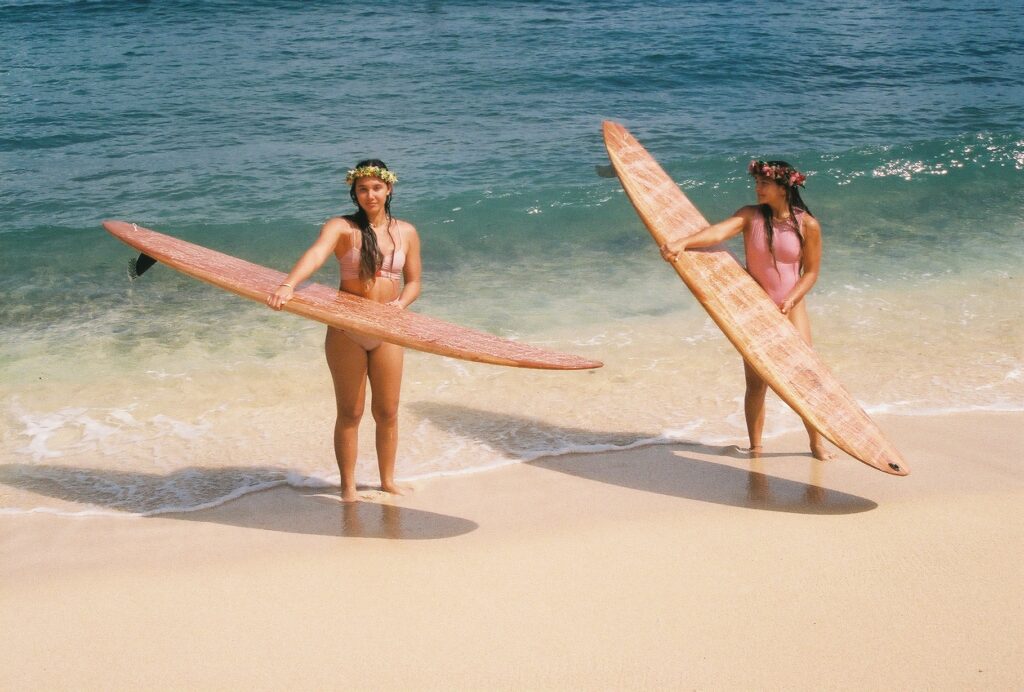
Definitely a passionate project, Bizia encompasses so many of our shared passions – from surfing to forest conservation, to preservation of native Hawaiian culture, to community, art, and even coffee. They chose eco-friendly surfboards because the production process of the modern surfboard is extremely wasteful and involves many environmentally toxic materials. Surfing originates from a culture focused on care for the land and sea, and fundamentally acts as a way for us to connect with our planet, so it only makes sense that every aspect of surfing should complement the environment, not damage it. Bizia struck a chord in me because coming from a Hawaiian family, it is very important to connect with brands that are bringing back the preservation of Hawaiian culture while repairing the island. “We actually received a lot of negative feedback when we first started. Albizia trees are held in a very negative view here due to the massive amount of damage they have done to Hawaiian forests. However, once people realized that the wood is high quality and very useful, and that utilizing them as a resource incentivizes their removal, they realized it’s actually a really good idea. Now, the reception to our work is overwhelmingly positive and we are so grateful that we stuck it out through the initial criticism.”
By using albizia wood to create their boards, Bizia is helping us all to reconnect with the ancient tradition of using Hawaiian-grown wood to make surfboards while helping to restore the forests from which they source that wood back to their natural state. It’s a process that’s simple, yet highly impactful. All done here on island, Bizia surf creates environmentally friendly surfboards by first removing invasive albizia trees from native forests and then milling the wood into lumber at their sawmill in central Oahu. They then use a CNC to cut the pieces into chambered strips that will be fused together into each board shape. Across the lot from the mill, their shapers put the pieces together then detail and shape the boards by hand before finishing with a bio-based resin. Because of the durable nature of wood, no fiberglass is required as part of the finishing process. The brand also makes ancient boards including the paipo, the original body board, and the alaia, a precursor to today’s modern surfboard. These are fully hand-shaped and finished with a linseed oil, making them entirely natural.
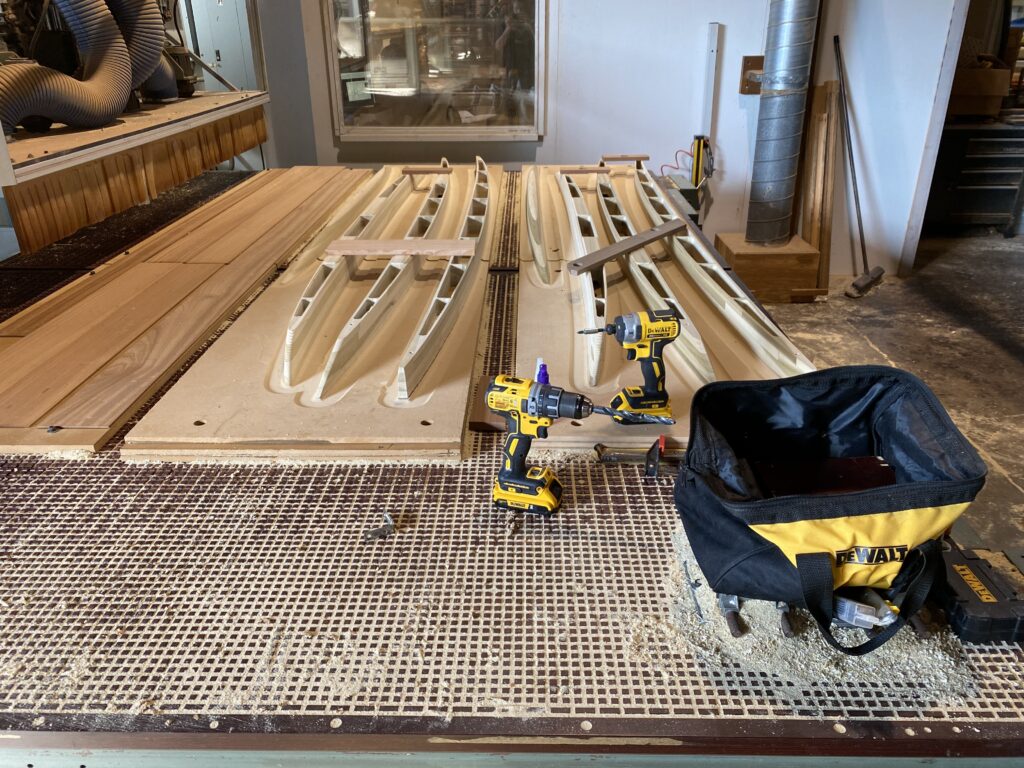
By using albizia wood to create their boards, Bizia is helping us all to reconnect with the ancient tradition of using Hawaiian-grown wood to make surfboards while helping to restore the forests from which they source that wood back to their natural state. It’s a process that’s simple, yet highly impactful. All done here on island, Bizia surf creates environmentally friendly surfboards by first removing invasive albizia trees from native forests and then milling the wood into lumber at their sawmill in central Oahu. They then use a CNC to cut the pieces into chambered strips that will be fused together into each board shape. Across the lot from the mill, their shapers put the pieces together then detail and shape the boards by hand before finishing with a bio-based resin. Because of the durable nature of wood, no fiberglass is required as part of the finishing process. The brand also makes ancient boards including the paipo, the original body board, and the alaia, a precursor to today’s modern surfboard. These are fully hand-shaped and finished with a linseed oil, making them entirely natural.
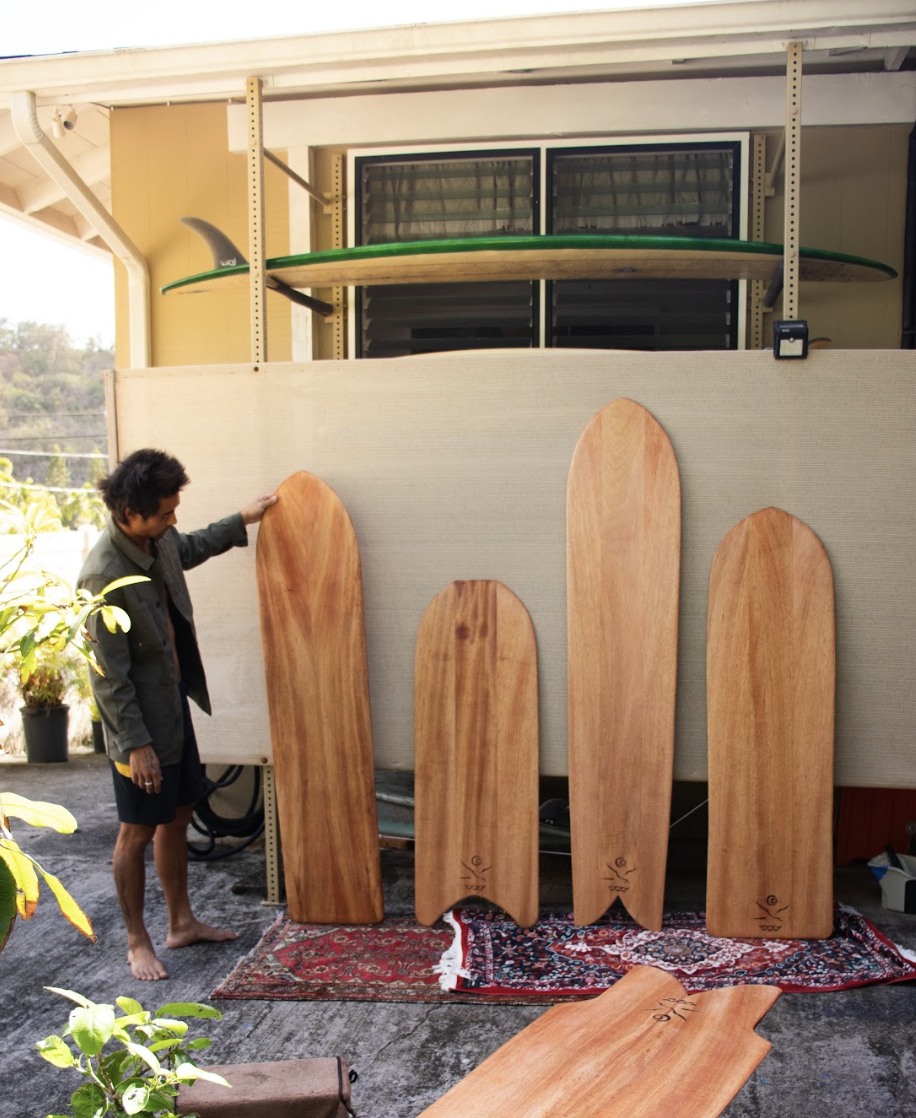
Operating under a fully circular production process, Bizia Surf sources virtually all materials from Hawaiian land and completes production locally. By removing invasive trees and replanting native species, they aim to be fully regenerative and contribute to forest restoration.
Staying on the cutting edge of modern surfboard design, they’re integrating emerging technology into future models and are currently working on a high performance prototype. While they can’t share more details just yet, we suggest you stay tuned for this one!
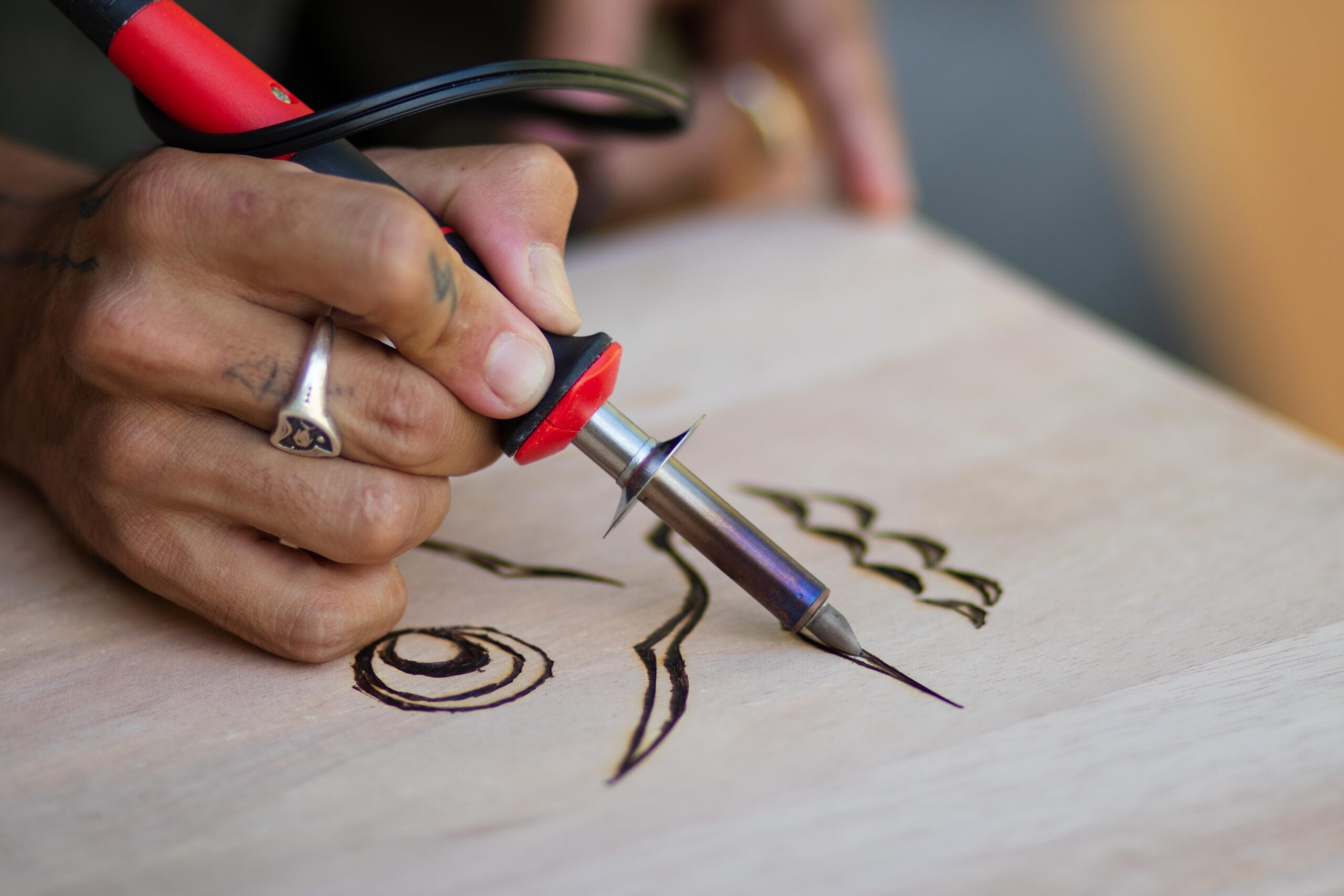
Beyond this, while still early on in the onboarding process of joining the ECOBOARD Project, Bizia Surf is stoked to be part of a community of like-minded companies that are equally inspiring as they are motivating! Surfboards are just a small piece of the dream. Bizia aims to inspire the global economy towards creative, regenerative alternatives in production, and to reconnect surfers with the roots of their passion, fostering harmony with the earth. The Bizia family sees invasive trees and other species as misplaced resources. By shifting our mindset from dismissing to utilizing them, we can incentivize their removal, reduce waste, and lessen our reliance on environmentally damaging materials. Together, we can pave the way for a more sustainable and regenerative future. Join us on this journey towards a greener, more harmonious world.
From the forest to the ocean, follow along with Bizia’s journey in performance wooden surfboards (and coffee of course) @biziasurf on Instagram.
